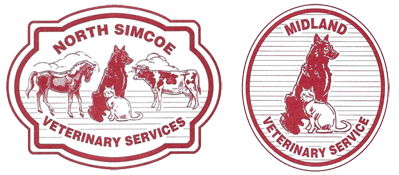Veterinary Care: New Bird Visit
Why does my pet bird need a veterinarian?
 Many bird owners are surprised to learn that their bird needs an initial visit by an avian (bird) veterinarian and at least an annual checkup, like all pets. In fact, many veterinarians recommend checkups for birds at least twice a year, to allow for early detection and treatment of potentially life-threatening diseases.
Many bird owners are surprised to learn that their bird needs an initial visit by an avian (bird) veterinarian and at least an annual checkup, like all pets. In fact, many veterinarians recommend checkups for birds at least twice a year, to allow for early detection and treatment of potentially life-threatening diseases.
Regular veterinary care is necessary to help ensure your bird lives a long, healthy life. Since pet birds are a prey species, it is common for them to hide symptoms of illness until they are critically ill. It is therefore critical for them to have a thorough health exam to make sure they are truly healthy.
The most important visit is the first one, which should occur within 1-2 weeks of acquiring your pet bird. During this visit, the veterinarian will perform a physical examination and recommend various diagnostic or wellness tests to determine your bird's state of health and see if your pet might be harboring any diseases that require treatment.
"Make sure your bird's veterinarian is qualified and experienced in treating pet birds."
The visit should also include a thorough discussion of proper nutrition, housing, care, grooming, and training/socialization of your new pet. The most important part of this initial visit is to feel comfortable with the doctor and the hospital staff. Ask questions about the proper diet for your bird and find out what foods, like avocados and onions, must be avoided.
Make sure your bird's veterinarian is qualified and experienced in treating pet birds. Avian medicine has become a highly technical part of veterinary medicine and often requires extra training after graduation to become competent in treating pet birds. Most general dog and cat practitioners are not comfortable or knowledgeable in avian medicine.
Ask the veterinarian about their qualifications and experience. At a minimum, an avian veterinarian should be a member of the Association of Avian Veterinarians (AAV), in good standing. If your veterinarian is not comfortable seeing your bird, ask for a referral to a veterinarian who is more experienced in avian medicine and surgery.
What happens during an avian check-up?
Each veterinarian has their own protocol for an initial visit, but many avian veterinarians recommend some or all of the tests listed below as screening to aid in the wellness exam. Birds with high anxiety during the exam or restraint may require light sedation to make the exam less stressful.
Physical examination. Every visit starts with a thorough physical examination. During the physical, your veterinarian will record your bird's weight, general appearance, and mobility. They will palpate (feel) various parts of your bird's body, from head to tail. They may use a Q-tip or speculum to look inside the bird’s mouth. They may use a stethoscope to listen to your bird's heart and respiratory system. Any abnormalities they note or changes that have occurred since the previous visit may require specialized testing. Your bird’s feces and urine movements will be assessed before or after the physical exam.
Blood testing. Blood tests assess organ function and blood biochemistry, and should be a routine part of a bird’s health exam, just as they are for people. Blood testing can include a complete blood count (CBC), which counts red blood cells, white blood cells, and platelets; and a blood chemistry profile, which tests calcium, phosphorus, glucose, total protein, sodium, and potassium levels, as well as organ function. If requested, your veterinarian may also send a blood test away to determine the sex of your bird.
Radiological testing. Using whole-body radiographs (X-rays), the veterinarian can examine your bird's body for abnormalities in the size, shape, and position of body organs; screen for masses such as tumors or granulomas; look for intestinal foreign bodies and abnormal fluid accumulation; and check for abnormalities in the skeletal system. Your bird will generally need sedation or gas anesthesia to conduct a proper whole-body X-ray.
Specialized testing. Additional testing may include tests for chlamydiosis (also called psittacosis, a disease that is transmissible to other pets and people); polyomavirus; avian bornavirus (ABV); and circovirus (psittacine beak and feather disease). The need for testing depends on findings from the physical exam, laboratory tests, or exposure to other birds with a specific disease.
Fecal analysis. Microscopic fecal examination allows your veterinarian to detect intestinal parasites in your bird.
Microbiological testing. Your veterinarian may take swabs of the bird’s choana (roof of the mouth) and cloaca (vent) to perform Gram stains, which indicate the presence of abnormal bacteria and/or fungal organisms. Depending on the findings, additional tests, such as culture and sensitivity, may be needed to determine the species of bacteria or fungal organisms and the proper medical treatment.
To find a member of the Association of Avian Veterinarians, go to www.aav.org and click “Find-A-Vet” at the top of the page.
© Copyright 2025 LifeLearn Inc. Used and/or modified with permission under license. This content written by LifeLearn Animal Health (LifeLearn Inc.) is licensed to this practice for the personal use of our clients. Any copying, printing or further distribution is prohibited without the express written consent of LifeLearn. This content does not contain all available information for any referenced medications and has not been reviewed by the FDA Center for Veterinary Medicine, or Health Canada Veterinary Drugs Directorate. This content may help answer commonly asked questions, but is not a substitute for medical advice, or a proper consultation and/or clinical examination of your pet by a veterinarian. Please contact your veterinarian if you have any questions or concerns about your pet’s health. Last updated on May 1, 2025.

